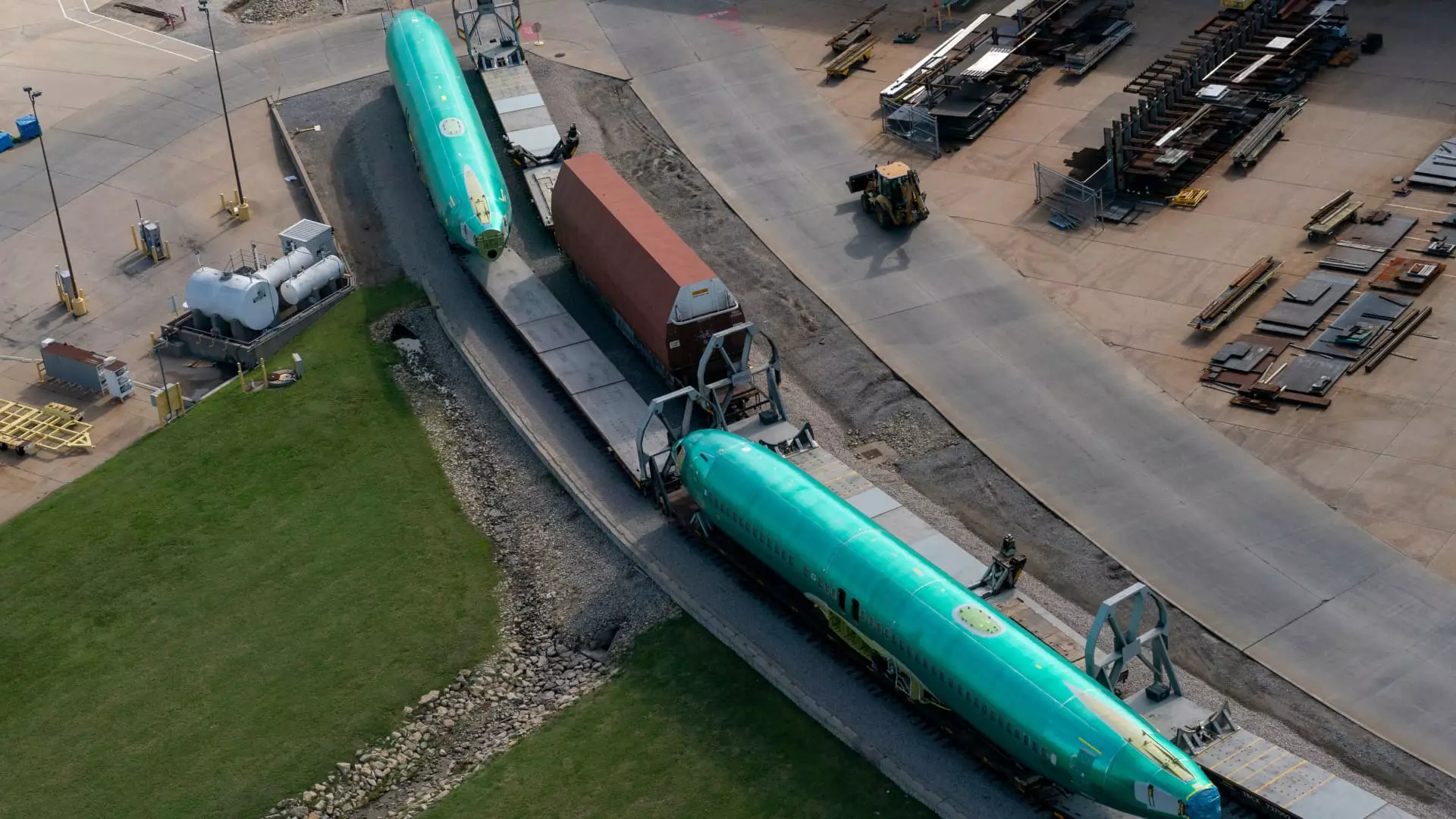The aerospace industry is currently experiencing significant turbulence due to ongoing labor disputes. Most notably, the machinists’ strike at Boeing, which has now entered its sixth week, is sending shockwaves through the supply chain, particularly impacting Boeing’s key supplier, Spirit AeroSystems. With the potential for expanded furloughs or layoffs, the situation reflects not only the challenges faced by one organization but also the vulnerabilities of a complex industrial network that is still recovering from previous shocks, including those caused by the COVID-19 pandemic.
Boeing currently grapples with a critical labor stalemate as 32,000 of its machinists in regions like the Puget Sound and Oregon have effectively halted production after overwhelmingly rejecting a new labor contract. This unprecedented work stoppage threatens to disrupt the production landscape for one of the largest aircraft manufacturers in the world. The impact is felt particularly across Boeing’s manufacturing lines, with a significant reduction in the output of popular models like the 737 Max.
Spirit AeroSystems: A Supplier in Distress
As a direct consequence of the Boeing strike, Spirit AeroSystems finds itself in an increasingly precarious position. The company, known for producing essential components such as fuselages, is preparing to furlough around 700 employees at its Wichita, Kansas facility. The looming threat of additional layoffs if the strike persists past November 25 showcases how deeply interconnected the aerospace industry is. The ripple effects of Boeing’s labor unrest extend well beyond its immediate workforce, affecting thousands of employees across various supply chain partners.
Financial Ramifications for Spirit AeroSystems
The financial health of Spirit AeroSystems paints a bleak picture amidst these challenges. Having recently reported a staggering third-quarter net loss of $477 million—over double the losses sustained the previous year—Spirit’s operational viability is under scrutiny. This financial distress emphasizes the urgency behind the potential furloughs and layoffs; if production does not resume soon, the company risks further financial degradation.
The Broader Implications for the Aerospace Industry
Beyond Spirit AeroSystems, other industry players are also feeling the strain. Airbus has indicated that it is similarly struggling with supply chain pressures. With both major aerospace manufacturers facing challenges, the situation serves as a stark reminder of the fragility inherent in global supply chains. Years of rebuilding after the pandemic created a precarious environment for many suppliers, prompting them to hesitate in making significant workforce cuts despite the creeping threat of financial hardship.
Both Spirit AeroSystems and Boeing find themselves at a pivotal crossroads. Boeing’s CEO has emphasized the need to resolve the strike as a priority, recognizing that negotiations must proceed swiftly to restore production levels and protect the extensive network of supply chains that depend on it. The union’s willingness to return to the negotiating table signals a potential path forward, but time is of the essence. The outcome of these discussions could very well shape the future of the aerospace sector as it navigates the complexities of labor relations and economic pressures.
The ongoing machinists’ strike at Boeing serves as a potent reminder of the interconnectedness of supply chains in the aerospace industry. The unfolding situation warrants close attention, as the decisions made in the coming days will likely have lasting impacts on industry dynamics and economic stability.

